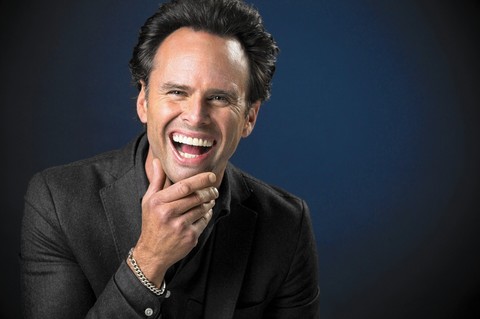
In the US: Wednesdays, 10/9c, History
In the UK: Not yet acquired
Why is it that dramas about Special Forces aren’t that special? On the face of it, making an exciting show about the Special Forces shouldn’t be that difficult. As A Bit of Fry and Laurie once pointed out, the SAS (and presumably other Special Forces) exist purely to be masturbatory fantasies for backbench MPs, so putting together a TV show involving Special Forces should inevitably result in something very exciting and, erm, climactic.
Yet, whether it’s Ultimate Force, The Unit, Strike Back or now Six, somehow the resulting shows never quite hit the spot – they’re close, but they’re never really as satisfying as you think they’ll be.
Six is interesting in this regard. Ten years ago, if you’d made a show called Six, the most anyone would guess you were doing was remaking The Prisoner. But thanks to their sterling work in dealing with Osama Bin Laden, the US Navy’s SEAL Team 6 is the latest pin-up of the Special Forces world. That means you can call a TV show Six and it’ll induce as much Pavlovian tumescence as if you’d called it Scarlett.
Trouble is, despite this launchpad, Six is all tease, no pay-off. The first episode follows a SEAL Team 6 team to a mission in Afghanistan where there’s plenty of shooting and leader Walton Goggins (Justified, Vice Principals, The Hateful Eight) starts to blur a few boundaries by shooting prisoners. Two years later, Goggins is out of the SEALs and in Africa, working for a private contractor, while the rest of the team are thinking about doing something similar and/or having problems with their wives and/or the bottle and/or money.
Then Boko Haram come along and kidnap a group of school girls, as well as Goggins, and the team are pulling themselves back together to rescue him.
Six takes all the worst bits of The Unit and few of the best bits. It tries to mix up the personal and the military, but without having any idea how to create distinguishable characters, particularly not women, who are a never-ending parade of “why aren’t you here for me and your children?”
Which might almost be excusable if it could do action, except it can’t. Shoot-outs and action scenes are surprisingly few and far between, and when they turn up, they’re nothing special. Name an action TV show, any action TV show – you’ll have seen better and something probably more realistic.
But even little details let the show down. Maybe it’s me, but giving your SEAL team the radio sign of “Delta 1” is only going to lead to confusion in the audience. And sure, kudos for managing to go with Boko Haram as your main bad guys, rather than ISIS (although a reveal at the end of the first episode shows Six is trying to have its cake and eat it), but having to have an officer explain to one of the world’s premier anti-terrorist units who Boko Haram are is not a way to create verisimilitude.
More importantly, Goggins is just wrong as the leader of the team. Not for a second can you picture him as either a morally ambivalent hero or a SEAL. Now to a certain extent, that’s not his fault – he was brought in not merely at the last moment but two episodes of filming after the last moment, which is when Joe Manganiello walked off the show with health problems. You can imagine Manganiello as “Rip Taggart”:
Goggins?
Not so much.
It’s like casting Vinny Jones as a wedding cake designer – it’s simply not believable. So even though the rest of the cast of SEALs are (indistinguishable) butch manly types who look the part, little seems plausible as a result of Goggins’ presence.
If you have to watch a Special Forces show, there were at least a few good episodes of The Unit (Dark of the Moon is excellent) and Strike Back, so stick with them rather than Six, since Six won’t have yours. Six that is.



